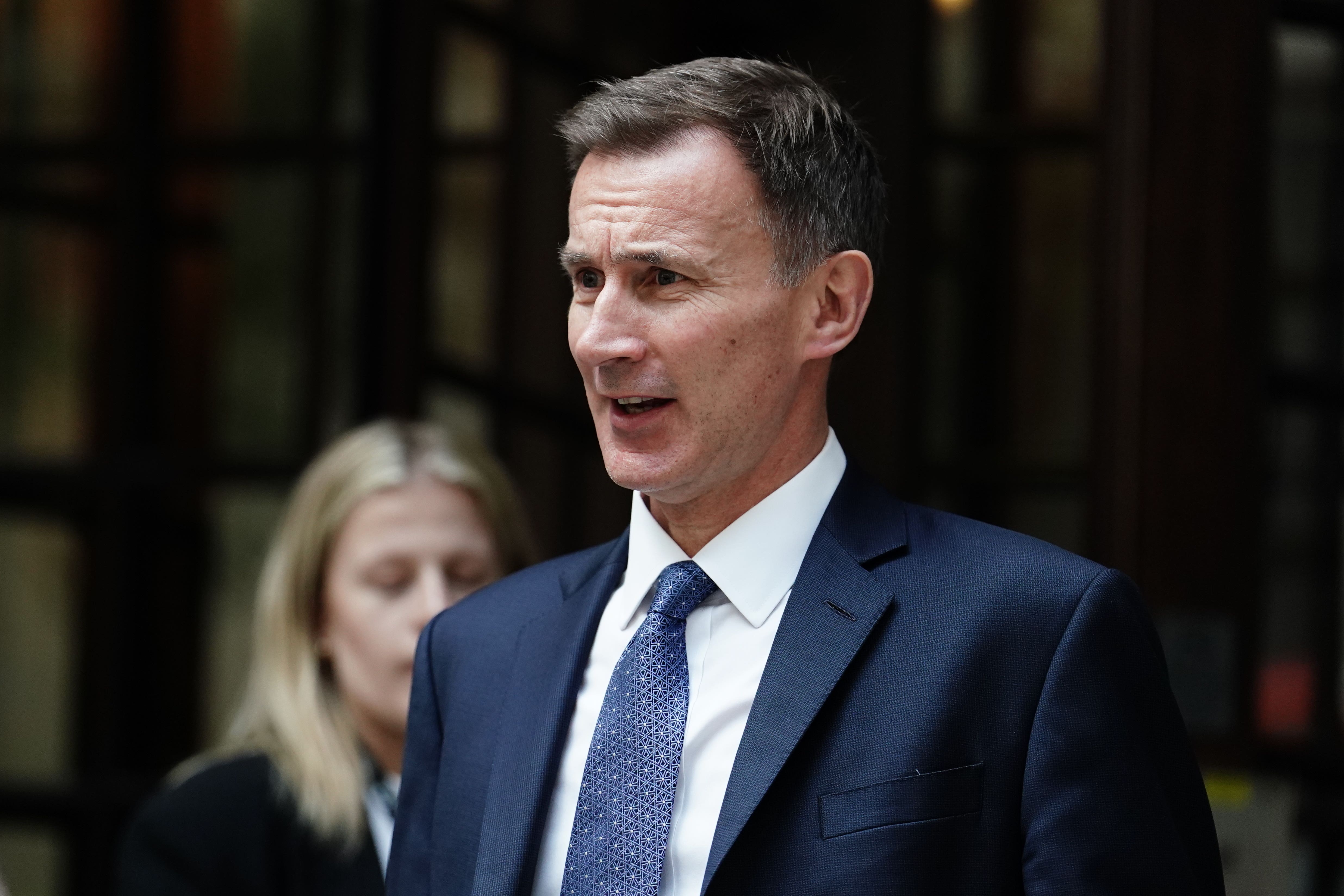Debanking poses threat to free speech, Hunt says as he asks regulator for probe
The Chancellor has asked the Financial Conduct Authority to look into account closures and report back to him next month.

Chancellor Jeremy Hunt has asked the City watchdog to look into the extent of debanking, as he said the practice poses a “threat” to free speech.
It comes as banks face widespread reforms over account closures, after the Nigel Farage row that last week led to the resignation of the top bosses at NatWest and Coutts.
The former Ukip leader said his bank account was unfairly shut down by Coutts, owned by NatWest Group, because it did not agree with his political views.
A threat to be debanked ... is a threat to your right to express your opinions
Mr Farage’s campaign against account closures has received support from ministers, with Mr Hunt expressing concern over how many people are affected.
The Chancellor wrote to the Financial Conduct Authority (FCA) on Thursday to “urgently investigate how widespread this practice is, and put a stop to it”.
He told broadcasters: “I’m worried that it may exist more than we had thought.
“And the reason I’m worried is because free speech is a fundamental human right. And you can agree or disagree with Nigel Farage but everyone wants to be able to express their opinions.
“But in today’s society you need a bank account to function and so a threat to be debanked, as the word is now widely used, is a threat to your right to express your opinions.
“So we have regulations, I think it’s regulation 18 of the payment accounts regulations, that ban this so-called debanking of people for their political views.
“I’ve written to the regulator, which is the Financial Conduct Authority. They have the right to fine banks very large sums of money if they find this practice is widespread.
“I want to know if it is and I want to know what they’re doing about it and they said they’ll get back to me by September.”
In his letter to the regulator, shared by the Chancellor on Twitter, he urged it to progress its review urgently and to consider the scale and characteristics of customers affected; the drivers of these decisions, what monitoring and enforcement action the FCA has taken, and the speed and the type of recourse available to customers.
“Based on these findings and in light of any steps the FCA determines it appropriate to take within its existing powers, the Government will determine whether further action is necessary to ensure nobody is being unfairly denied banking facilities,” he wrote.
FCA chief executive Nikhil Rathi confirmed the regulator has launched a review into bank account terminations.
In a letter responding to Mr Hunt, he wrote that the Chancellor’s request of areas to cover is “in line with our plans” and “we willprovide an initial assessment by mid-September”.
He said the FCA will gather data from the largest banks and building societies in the coming month on the number of account closures and the reasons for these, complaints about them and the outcomes, as well as the volume of applications refused.
Mr Farage tweeted: “The Chancellor has written to the FCA about my case and the issue of de-banking. Thank you @Jeremy_Hunt.”
The ex-MEP this week said Coutts has offered to reinstate his personal and business accounts, while he is also seeking compensation from the private bank.
NatWest has announced an independent review, with lawyers looking at the closure of Mr Farage’s account and other instances of debanking by Coutts.
NatWest’s Dame Alison Rose resigned as chief executive after acknowledging a “serious error of judgment” by discussing with a BBC journalist Mr Farage’s relationship with Coutts.
Bookmark popover
Removed from bookmarks